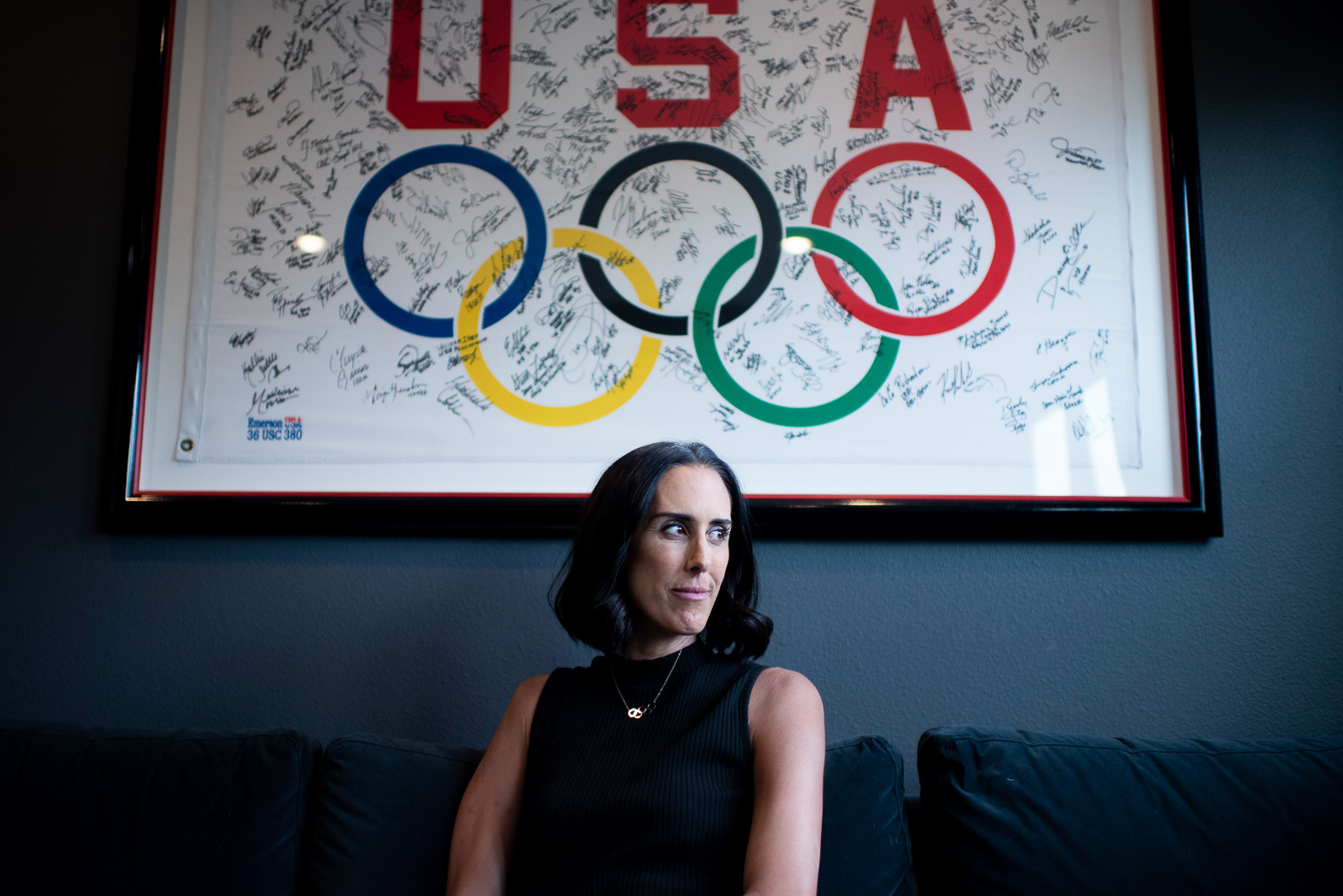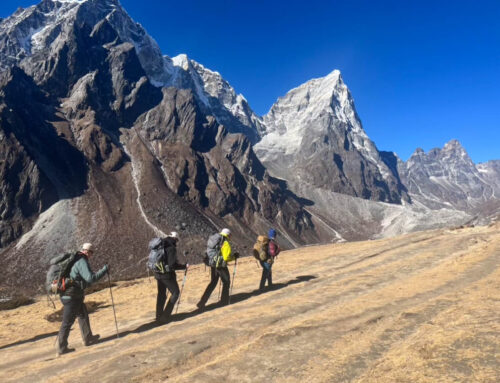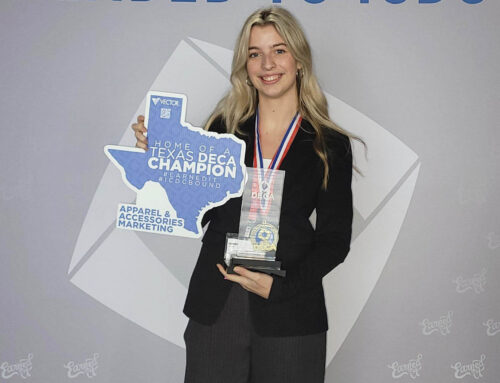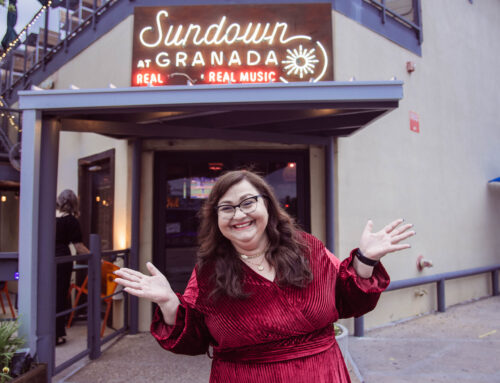A few years ago, by all appearances, Erin Aldrich-Shean had the perfect life.
To local sports fans, the Lake Highlands High School alum is a legendary dual athlete. Back at Forest Meadow Junior High, her coaches petitioned for her to compete at the Texas Relays, where she won the high jump against an all-high-school field. She had decided at 6 to become an Olympian, and that high-profile performance set a course for her participation in the 2000 games.
Injured in a professional volleyball match, she missed a spot on the 2008 USA Track and Field team, she says. Being a two-sport athlete came with risks, but she wanted to be a role model for girls, to “show them you can be great at more than one thing.”
But Erin harbored a secret she found too shameful even to tell her spouse.
“I thought I would take it to my grave,” she says.
However, it dawned on her that her nondisclosure might be hurting other women.
In 2020, Erin, along with ex-University of Texas athletes Londa Bevins and Jessica Johnson, filed a class-action lawsuit against John Rembao, Erin’s high-jump coach at the University of Arizona and later the University of Texas. The lawsuit alleged sexual abuse and harassment between 1997 and 2000, and named the NCAA and its Board of Governors as defendants for failing to protect athletes.
Rembao, who also has coached at Southern Methodist University, Stanford University and California’s Los Gatos High School, began recruiting Aldrich for Arizona when she was a junior at Lake Highlands High School.
In the 1990s, long before he ever touched her, Rembao spent long hours talking to Erin on the phone, flattering her athletic abilities, and gradually moved into commenting on her looks, she says. Sustained, progressive flattery brainwashed her into believing she and Rem- bao had a special romantic relationship.
“He was grooming me by calling me beautiful and sexy,” she says. “I was in love with him even before he touched me.”
In August 1996 Rembao volunteered to chaperone her at the world junior track and field championships in Sydney, Australia when her LHHS coach was unable to travel.
“He bought the whole family into it,” she says. “My parents fully trusted him, everyone in the [sporting community] loved him.”
On that trip, when she was 18, she says, Rembao first initiated sexual contact. He said he would leave his wife and convinced Erin she could never be an Olympic athlete without him being her coach, she says.
Rembao’s attorney did not respond to a request for comment, but he and his client have denied all allegations. “I maintain I did not groom, assault or harass these women,” he told the Santa Cruz Sentinel.
The case against Rembao was dismissed by plaintiffs after the parties reached a confidential settlement, according to Lynn Ellenberger, attorney to Erin and the two other women. She adds that the suit against the NCAA was dismissed by the court in 2021 based on the statute of limitations.
Erin says one of the hardest things to accept was that, years ago, she did not support a fellow victim, Jessica Johnson, who filed a deposition when she was at UT being coached by Rembao.
“I had a flashback to 20 years ago, when [Rembao] pulled me to the side of the track and said Jessica was accusing him of things,” Erin says. “And I believed that he wouldn’t do that.”
Erin revealed her experiences to her husband, her parents and a mental health professional. In therapy, she wrote a letter to Rembao, confronting him, asking why he hurt her, begging him to resign from coaching. Later, she called Rembao and requested a meeting.
Had he responded, that might have been the end of it. His silence created a “pivotal moment” in which she stopped feeling empathetic.
“That made me mad,” Erin says. “I wanted him to listen. If he’s not going to give me that respect, I do not feel so bad about stopping his coaching career.”
She filed a report with SafeSport, established in 2017 to investigate allegations of sexual misconduct on minor athletes and impose sanctions. Erin’s disclosure to SafeSport was a “critical piece” in the effort to protect young athletes, according to Olympic tennis player Tracey Smith, a sexual assault survivor who interviewed Erin on her show Open Stance.
“By detailing her former coach’s dangerously slow and methodical grooming process that led to her sexual abuse, Erin brought a focus to the potential dangers and inherent power imbalances in the coach-athlete relationship,” Smith said on the show.
Despite its dismissal, the lawsuit represented a “tremendous call to action” that could help empower athletes at every level by promoting lasting institutional change within the bodies responsible for athletes’ wellbeing, Smith added.
In March 2020, USA Today reporter Christine Brennan’s story about the allegations against Rembao broke. Los Gatos High School terminated his employment after hearing of his SafeSport suspension, according to the Sentinel.
“That bumped it up to the very top. We got him out of sports, which was the objective in all of this,” she says.
During the pandemic, Erin’s career in commercial real estate seemed doomed (“we did not know if the world was ending or what,” she says). Her husband (chief academic officer at an online college) works remotely, so they sold their Southern California house to return to Dallas.
Today they live in Lakewood, and Erin, after working with a performance and life coach, decided to become one herself.
In her new role as owner of Ascension Coaching & Consulting, her most painful experiences have become some of her most valuable assets.
“I have been in so many places, competed at the highest level in two sports, lost and regained motivation, been unhappy and happy,” she says. “I just knew I had to leverage it all and help others going through similar phases in life.”






